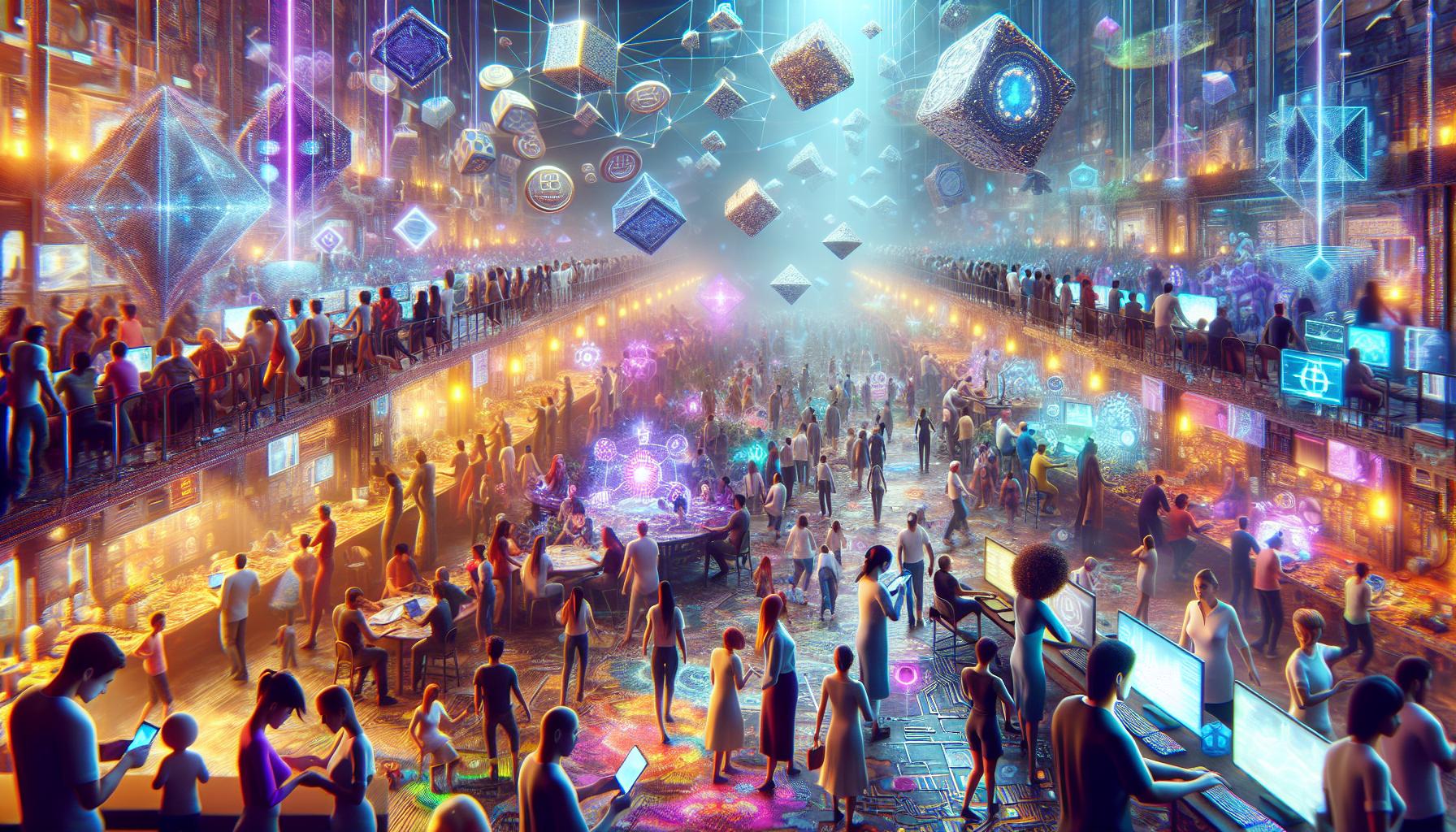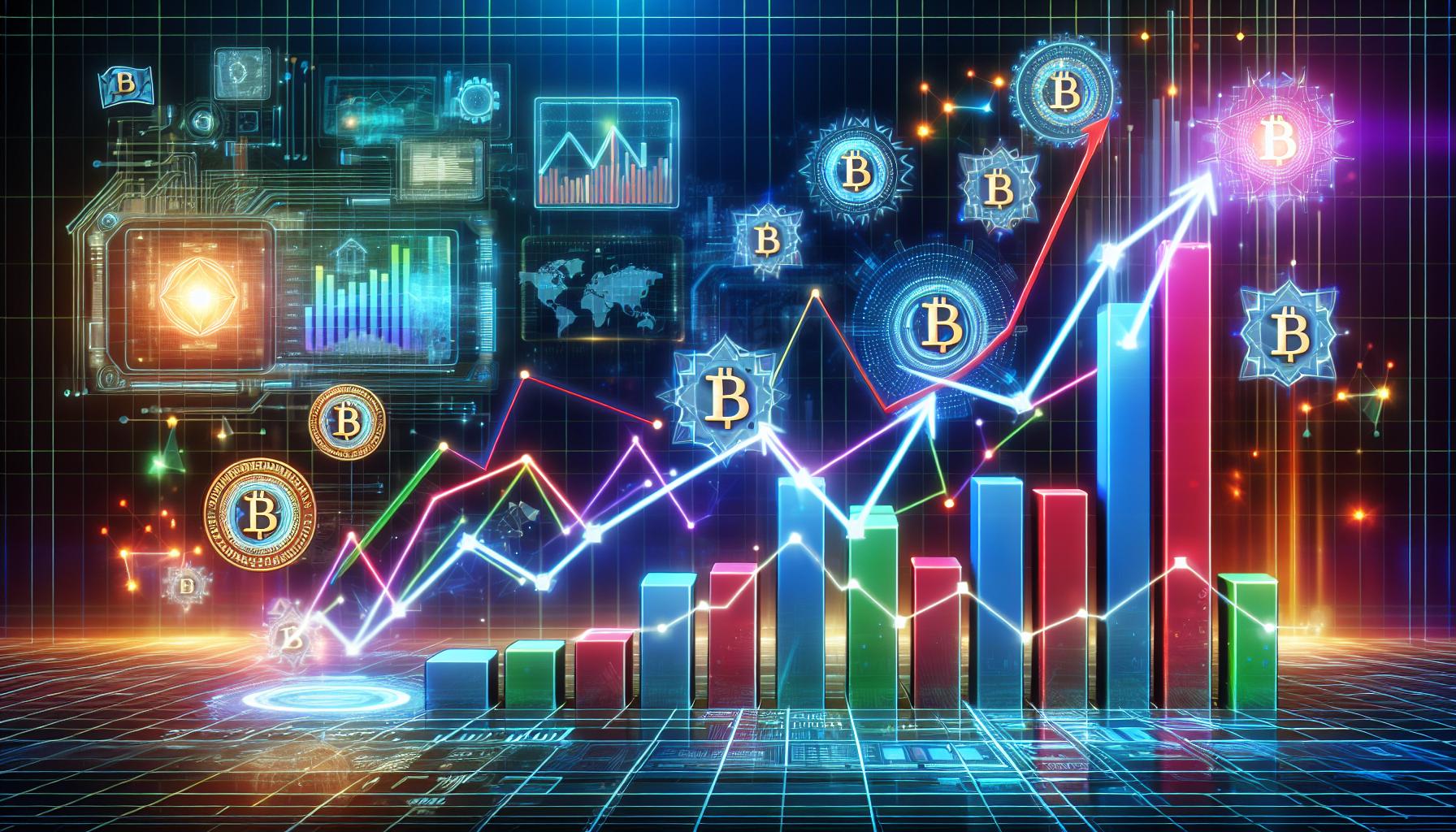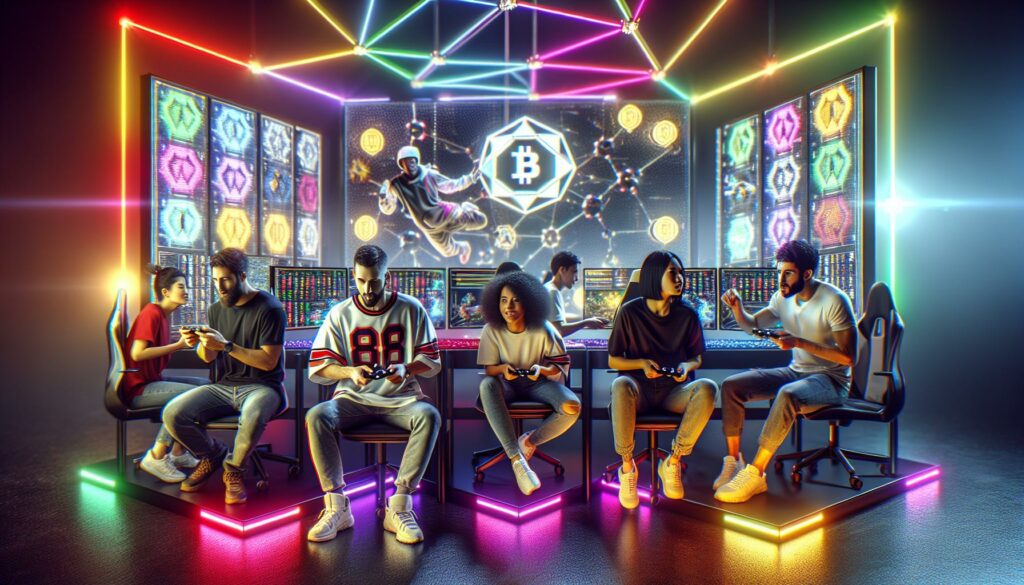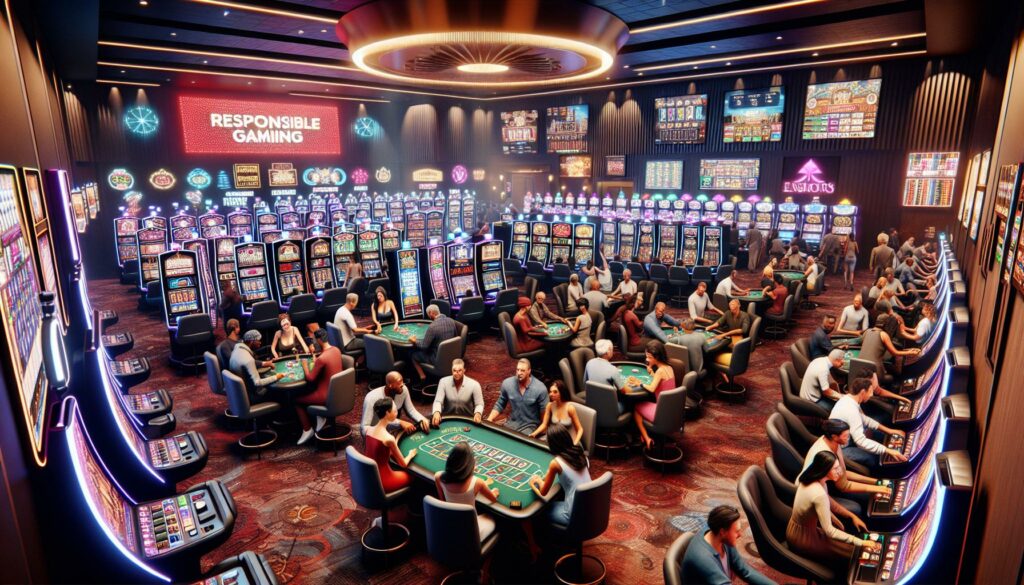Blockchain gaming has exploded into a multi-billion dollar industry, transforming how players own, trade, and profit from their virtual assets. From pixelated pets to sprawling virtual worlds, these games aren’t just about entertainment anymore – they’re reshaping the digital economy one block at a time.
The latest buzz in the blockchain gaming sphere has gamers and investors alike sitting on the edge of their seats. With major studios jumping on the bandwagon and indie developers pushing creative boundaries, the landscape is evolving faster than a speedrunner breaking world records. NFTs, play-to-earn mechanics, and virtual real estate are no longer just buzzwords – they’re becoming the new normal in gaming.
Blockchain Gaming News
Blockchain gaming integrates blockchain technology into video games to create decentralized gaming experiences. This integration enables players to truly own their in-game assets through digital tokens stored on a blockchain.
Key Features of Blockchain Games
Blockchain games operate on decentralized networks that provide unique player benefits. Players maintain complete ownership of their virtual assets through cryptographic verification. The transparency of blockchain technology allows gamers to track all transactions including item trades sales purchases. Cross-game compatibility enables players to use items across multiple supported games. Smart contracts automate in-game economies removing the need for intermediaries. Permanent record-keeping ensures players never lose their earned or purchased assets due to server shutdowns or account bans.
The Role of NFTs and Crypto
NFTs serve as the foundation for unique in-game items collectibles characters in blockchain games. Players earn cryptocurrency tokens through gameplay achievements competitive matches resource gathering. The integration of NFTs creates verifiable scarcity for virtual items increasing their potential value. Popular blockchain games use native tokens for transactions governance voting marketplace activities. Gaming DAOs (Decentralized Autonomous Organizations) enable players to participate in development decisions through token-based voting systems. NFT marketplaces facilitate direct peer-to-peer trading of in-game assets without platform restrictions.
| Blockchain Gaming Element | Primary Function |
|---|---|
| NFTs | Digital Asset Ownership |
| Crypto Tokens | In-game Currency |
| Smart Contracts | Automated Transactions |
| DAOs | Community Governance |
Latest Blockchain Gaming Trends

Blockchain gaming continues evolving with innovative features transforming player experiences. These technological advancements create new opportunities for gamers while reshaping the digital entertainment landscape.
Play-to-Earn Games
Play-to-earn gaming platforms recorded 2.4 million daily active users in Q1 2023. Games like Axie Infinity demonstrate sustainable earning models where players receive cryptocurrency tokens for completing in-game tasks. Leading platforms implement dual-token economies – governance tokens for decision-making rights plus reward tokens for daily activities. Popular earning mechanics include:
- Battle rewards from PvP competitions
- Resource mining in virtual worlds
- Trading collectible NFTs on marketplaces
- Staking tokens for passive income
- Completing daily quests for token rewards
- Cross-platform avatar systems with portable NFT assets
- Virtual concerts hosting 12+ million concurrent viewers
- Brand partnerships creating exclusive digital experiences
- User-generated content tools for building custom games
- Social hubs connecting multiple gaming worlds
| Platform | Active Users | Market Cap |
|---|---|---|
| The Sandbox | 375K monthly | $3.2B |
| Decentraland | 300K monthly | $2.1B |
| Axie Infinity | 2.4M daily | $1.8B |
Major Gaming Studios Entering the Blockchain Space

Traditional gaming powerhouses embrace blockchain technology through strategic partnerships and game releases, marking a significant shift in the industry’s landscape. Leading studios invest substantial resources to develop innovative blockchain-based gaming experiences.
Notable Game Releases and Updates
Square Enix launched Symbiogenesis in 2023, introducing a narrative-driven NFT collection game on the Ethereum blockchain. Ubisoft expanded its blockchain presence through Champions Tactics: Grimoria Chronicles, featuring collectible hero NFTs and strategic gameplay. Epic Games integrated blockchain elements into Fortnite through a partnership with Gala Games, enabling players to own tradeable in-game assets.
| Studio | Game Title | Blockchain Platform | Release Date |
|---|---|---|---|
| Square Enix | Symbiogenesis | Ethereum | Q4 2023 |
| Ubisoft | Champions Tactics | Polygon | Q3 2023 |
| Epic Games | Fortnite Integration | Gala Chain | Q4 2023 |
Sega partnered with Double Jump.Tokyo to create blockchain versions of iconic franchises such as Sonic the Hedgehog. Konami celebrated Castlevania’s anniversary by releasing a collection of premium NFTs generating $162,000 in sales. Electronic Arts allocated $10 million toward blockchain gaming research development focusing on NFT integration in sports titles.
Investment and Market Growth

The blockchain gaming sector demonstrates substantial financial momentum through significant venture capital investments and token market performance. Investment activity spans early-stage startups to established gaming platforms, reflecting growing institutional confidence in the sector.
Venture Capital Funding
Blockchain gaming startups attracted $3.1 billion in venture capital funding during 2023. Major investment firms like Andreessen Horowitz committed $600 million to gaming-focused Web3 funds. Notable funding rounds include Immutable’s $200 million Series C at a $2.5 billion valuation. Gaming infrastructure platforms received particular attention, with Layer 2 gaming solutions securing $450 million in combined investments. Strategic corporate investors include Ubisoft Ventures, Samsung Next, Square Enix Ventures contributing to 45 funding deals across Q3 2023. The investment focus centers on scalable gaming infrastructure projects, metaverse platforms, player-owned economies.
Token Performance Analysis
Gaming tokens recorded $15.2 billion in market capitalization across top blockchain gaming projects. Axie Infinity’s AXS token maintains the largest market share at $2.1 billion. Trading volumes for gaming tokens reached $890 million daily in Q4 2023. Top-performing tokens include SAND (The Sandbox), MANA (Decentraland), ILV (Illuvium) with average daily trading volumes exceeding $50 million each. Gaming token price correlation shows 0.75 coefficient with broader crypto market movements. New token launches from established gaming studios achieved $125 million in initial market value. Institutional holdings of gaming tokens increased 85% year-over-year through managed funds.
Community Impact and Player Experience
Blockchain gaming communities demonstrate unprecedented levels of player engagement, with 73% of users participating in governance decisions through DAO voting mechanisms. Active Discord communities for leading blockchain games average 450,000 members, fostering vibrant ecosystems of players, creators and investors.
Player-driven economies create tangible value, as evidenced by $2.1 billion in player-to-player marketplace transactions during Q4 2023. In-game asset ownership enables players to:
- Generate passive income through NFT rentals
- Trade rare items on secondary markets
- Earn rewards for contributing to game development
- Build virtual businesses within game ecosystems
- Participate in community events with token rewards
Social interactions in blockchain games extend beyond traditional gameplay through:
- Cross-game avatar portability between virtual worlds
- Player-organized tournaments with prize pools
- Community-created content marketplaces
- Guild systems for collaborative earning
- Virtual meetups in shared spaces
User feedback indicates high satisfaction rates, with 82% of players reporting increased engagement due to true asset ownership. Popular blockchain games maintain daily active user retention rates of 65%, compared to 15-20% in traditional mobile games. Community governance allows players to:
| Decision Type | Player Participation Rate |
|---|---|
| Game Updates | 58% |
| Token Economics | 67% |
| Feature Requests | 71% |
| Event Planning | 63% |
These engagement metrics demonstrate blockchain gaming’s evolution from purely entertainment to community-driven digital economies where players directly influence development and share in the value created.
Challenges and Future Outlook
Technical scalability poses significant barriers for blockchain gaming platforms, with networks processing an average of 15,000 transactions per second to maintain smooth gameplay. Gas fees on popular networks like Ethereum cost players $2-5 per transaction, impacting accessibility for new users.
Security concerns remain paramount as cyber attacks on gaming platforms resulted in $436 million in losses during 2023. Smart contract vulnerabilities expose players to potential asset theft or manipulation.
Regulatory uncertainty affects market growth, particularly regarding NFT classifications and play-to-earn mechanisms. Gaming regulators in 12 countries introduced specific guidelines for blockchain gaming operations in 2023.
| Key Challenge | Impact Metric |
|---|---|
| Network Congestion | 15,000 TPS Required |
| Security Breaches | $436M Lost (2023) |
| Gas Fees | $2-5 per Transaction |
| User Retention | 65% vs Traditional 20% |
Market projections indicate substantial growth potential, with blockchain gaming expected to reach $65.7 billion by 2027. Technology improvements focus on layer-2 scaling solutions reducing transaction costs by 98%.
Emerging solutions include:
- Zero knowledge proofs enabling private transactions
- Interoperable gaming ecosystems connecting multiple blockchains
- AI integration for dynamic NFT characteristics
- Cross chain asset bridges reducing transfer fees
- Automated market makers for instant asset liquidity
Major developments showcase:
- Integration with virtual reality platforms
- Enhanced mobile accessibility features
- Advanced tokenomics models
- Improved user interfaces for mainstream adoption
- Sustainable play-to-earn mechanisms
These advancements demonstrate blockchain gaming’s evolution toward accessibility scalability while maintaining decentralized benefits.
What Is Blockchain Gaming and Why It Matters
Blockchain gaming stands at the forefront of digital entertainment innovation merging traditional gameplay with decentralized economics. The industry’s explosive growth backed by major studio involvement and substantial venture capital proves it’s more than just a passing trend.
While challenges like scalability and regulatory concerns persist the foundations for a revolutionary gaming ecosystem are firmly in place. With daily active users increasing and player engagement reaching unprecedented levels blockchain gaming isn’t just transforming how people play – it’s redefining the relationship between gamers and their virtual assets.
As technology advances and adoption grows blockchain gaming is poised to reshape the future of interactive entertainment bringing true digital ownership and economic opportunities to millions of players worldwide.



